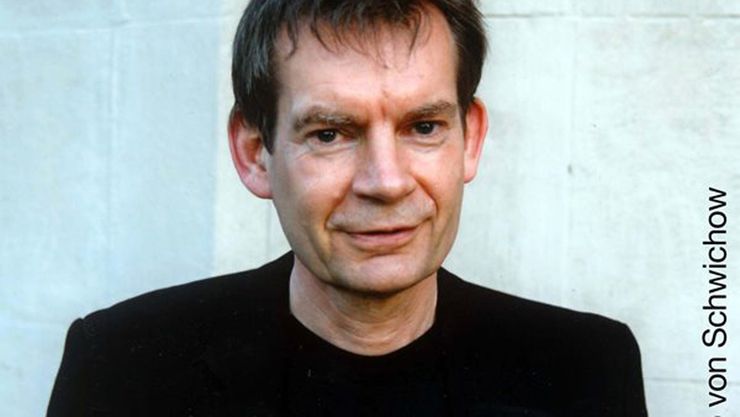Interview with author Graham Swift
In this interview, author Graham Swift answers questions on his novel Wish You Were Here, as well as his previous critically acclaimed novels.

In this interview, author Graham Swift answers questions on his novel Wish You Were Here, as well as his previous critically acclaimed novels.
Wish You Were Here reflects on the consequences for ordinary people of contemporary issues, the conflict in Iraq and the difficulties faced by farming communities. Is this a political novel or do they simply form a context for the issues Jack and Ellie face?
I don't think the either-or of the question really applies. I don't write political novels in the sense of writing with a political agenda and my primary interest is in the messy, uncategorizable stuff of personal life and in what might be called 'the stuff we have inside us'. And I also simply want to tell a story. But, equally, I've always been interested in how the 'small world' of our personal lives connects or doesn't connect with the 'big world' of historical and communal forces. Once you enter that area, there's a political dimension. You'd hardly call Jack a 'political creature' and most of his dealings in the novel are of an acutely personal kind, but he's not totally blind to the fact that he's also dealing, intimately and personally, with the consequences of his country's foreign policy or to the need to look into his own conscience about it. There's a passage in the novel where he reflects, clumsily, on what it means to be a 'citizen' - to be a citizen in the particular distressing circumstances he has to confront. That's the beginning of politics.
In locating Jack and Ellie's new life in a seaside caravan park, you've returned to the liminal zone between land and water that served you so well in Last Orders, Waterland and 'Cliffedge' [a short story in Learning to Swim]. Why do you think you've been drawn to writing about such locations?
I agree that I keep coming back to the seaside. There's a piece in my non-fiction book Making an Elephant which is all about this and called 'I Do Like to be Beside the Seaside', which was one of the epigraphs for Last Orders. There are two aspects to it. I think we're all drawn to the seaside, or to the coast generally, out of a rather primal urge: to be at the very edge of our natural habitat, contemplating this other element that isn't ours and which we know can be hostile. But of course we're also classically drawn to the seaside to indulge our sense of play and pleasure, to be on holiday, to shed our normal workaday selves, and this has spawned a whole, wonderful lore of seaside trivia.
The extraordinary thing is that the two urges, the elemental and the frivolous, can exist side by side. I've always been drawn to regions of ambiguity and precariousness (those titles, 'Waterland', 'Cliffedge', tell you everything), to regions where lines of inner as well as outer geography can suddenly, perhaps catastrophically, be crossed. Graham Greene liked to quote Browning's line: "Our interest's on the dangerous edge of things". But with the seaside you get this extra ironical, genial level - the sense of fun and vulgarity, life as comedy (and I think there's comedy in Wish You Were Here). The whole gamut of human responses seems to be there.
In previous novels, your characters have often been trapped in lives that leave them hobbled by regrets, such as Willy Chapman's pragmatic marriage in The Sweet Shop Owner or the Cricks' being trapped by history in Waterland. Was Jack's decision to move on from farming the only way to escape a forlorn destiny in Wish You Were Here?
I don't think it was the only way. After all, his own brother escapes by joining the army. But it's the way that happens in my story. And in my story Jack is given the particular opportunity for a new life that comes via Ellie. I don't, incidentally, see my characters as trapped. They're dealing as best they can with what life has brought them and with their own innate traits of character. If that's to be trapped, then we're all trapped.
As the publication of Graham's latest novel, Wish You Were Here, approached, he took some time to talk with Jonathan Ruppin (one of the team at Foyle's, Charing Cross Road) about the new book and its place within the wider context of his work.
These are the first three questions from a longer interview. If you would like to continue reading, you can do so on the Foyle's website, here.


